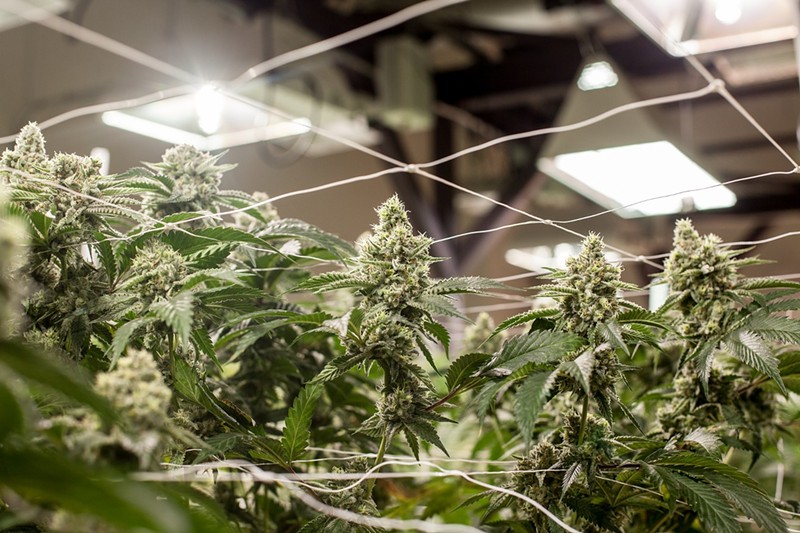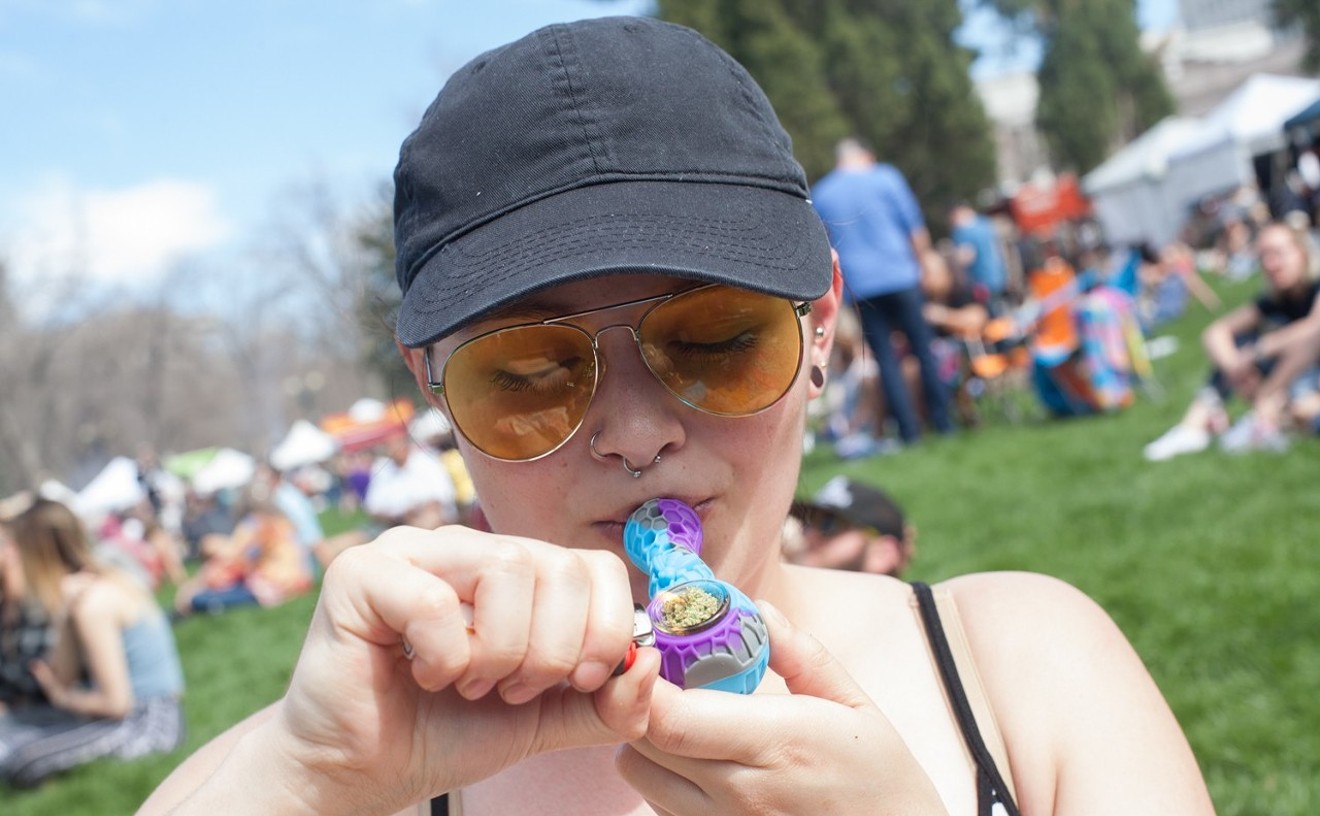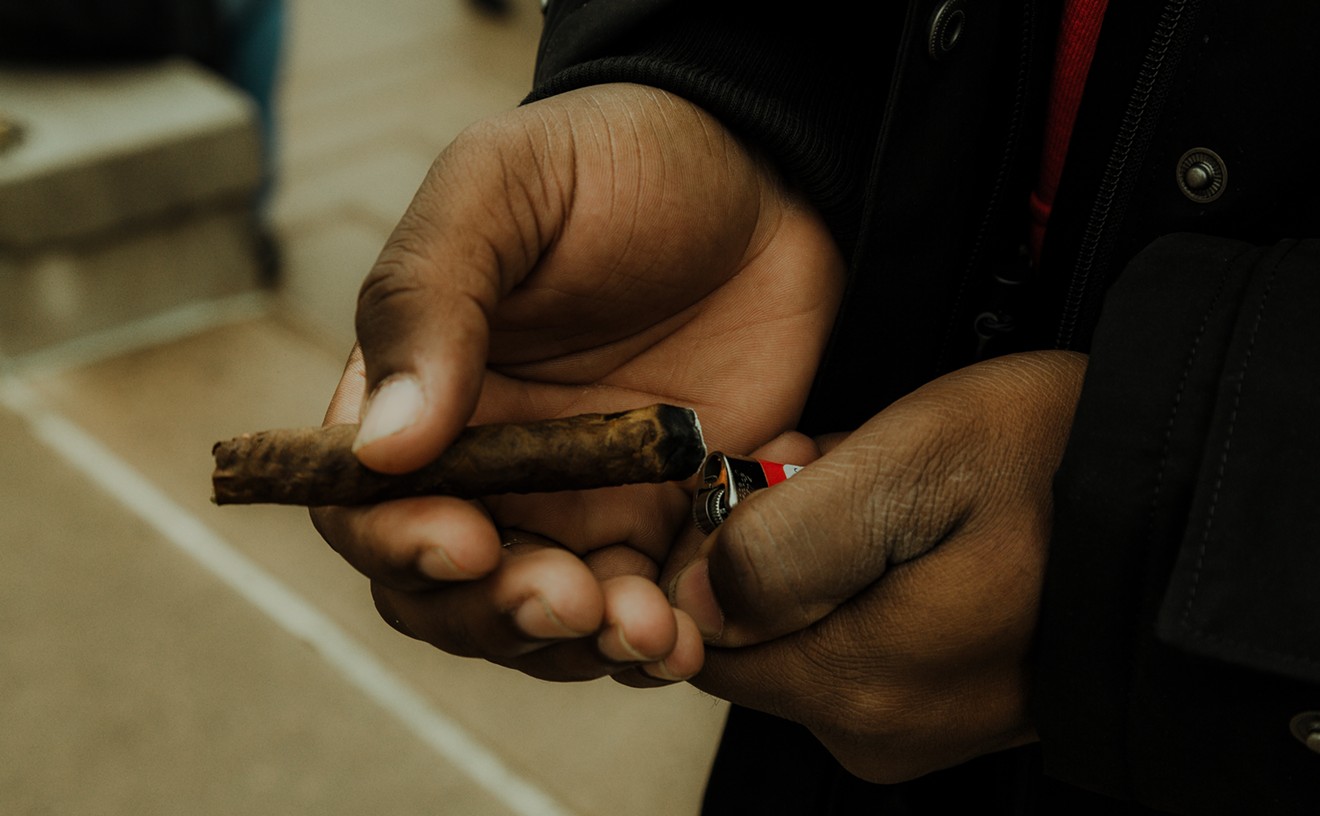Cannabis social equity advocates hope that the second time's a charm for a bill that would shake up Colorado's marijuana licensing structure, but they have a long road ahead.
Created less than four years ago, Colorado's social equity marijuana program was intended to spur diversity and benefit entrepreneurs from communities negatively impacted by the drug war. But while both the state and the City of Denver have created a handful of licensing, technical assistance and business grant initiatives, Color of Cannabis founder Sarah Woodson says that those moves have not led to successful businesses.
An advocacy group for social equity marijuana businesses, Color of Cannabis is pushing a bill at the state legislature this year that would create new preferential marijuana delivery opportunities and changes to Colorado's social equity licensing incentives and requirements. According to Woodson, who also owns marijuana delivery and hospitality services, both areas are currently dealing with "invisible barriers," and business owners "aren't making money because they're being stopped at every level."
"We're not having opportunities for true economic recourse, which was the true point of this program," Woodson argues.
The majority of Colorado's social equity services were implemented during or shortly after the COVID-19 pandemic, right around the time that Colorado's marijuana industry fell into a recession from which it still hasn't recovered. Marijuana delivery and hospitality sectors, approved in 2019 by the legislature, haven't gotten off the ground yet, either, with the vast majority of Colorado towns and counties still banning such businesses.
Denver, the state's marijuana capital and the only municipality to have opted into both delivery and hospitality, has just one licensed and operating hospitality lounge. According to the Denver Department of Excise & Licenses, there were slightly over 11,500 marijuana deliveries citywide in 2023, a 22.6 percent drop from 2022.
"What has happened is the natural maturation of an industry. It's just things evening themselves out, but that to me is not directly connected to the industry saying they would support social equity. On paper, social equity looks great, but the implementation is not working," Woodson says. "I'm at my wit's end, because it should not be that difficult for a small group of people to get economic justice through the cannabis industry. You have Denver, where air filtration is $250,000 for a hospitality lounge, and that comes with all these location setbacks."
It's not that money hasn't been spent on social equity. The City of Denver put up $500,000 for a social equity incubation program for marijuana entrepreneurs, a program that Woodson directed. Colorado's Cannabis Business Office, a division of the state Office of Economic Development and International Trade created by a bill that Woodson pushed in 2020, has issued over $1 million in grants to 43 social equity licensees since 2022. A handful of cannabis fairs and mentorship programs have also been created at the city and state levels for marijuana business owners.
According to Woodson, however, not all of that money has gone to good use. The Denver incubation program was put on hold last year, she notes, while larger, established companies have taken advantage of the state's qualification system for easy capital. Undeterred by a previous failure to turn things around at the Colorado Capitol, though, Woodson still believes legislative action is the best route to even the scales.
Sponsored by state representatives Naquetta Ricks and Regina English, House Bill 24-1061 would allow social equity delivery companies to deliver marijuana straight from a cultivation or manufacturing facility. Currently, delivery services must partner with and pick up orders from a brick-and-mortar dispensary, and delivery service owners often complain that the majority of dispensaries don't want to partner with them.
The measure would also add more scrutiny to social equity licensing, provide grants to local governments that establish their own social equity marijuana programs, and create tax incentives for established pot businesses that take part in Colorado's marijuana accelerator program.
Created in 2019, Colorado's marijuana accelerator program was intended to grant micro-licenses to new growers, extractors and edibles makers, who would then partner with established companies that let them use their facilities under operational agreements. There are currently zero active marijuana accelerator licenses across the state, according to Marijuana Enforcement Division records.
Woodson and Ricks tried running a similar bill last year, but it was eventually shelved after contentious meetings between social equity groups and larger pot industry players. The new measure is currently opposed by the Marijuana Industry Group, one of Colorado's largest marijuana trade organizations, and a handful of other large businesses and trade groups are keeping their eyes on it in hopes of amending the bill, according to the Colorado Secretary of State's Office.
The Marijuana Industry Group didn't respond to requests for comment, and Colorado Leads, another prominent marijuana industry trade organization, declined to speak but is monitoring the bill.
HB 1061 will likely receive pushback from larger industry representatives during its first hearing before the House Business Affairs & Labor Committee, and also face opposition from child protection groups. Blue Rising and One Chance to Grow Up, two organizations that lobby for marijuana industry guardrails, have both come out against the bill. (The hearing was originally scheduled for February 15, but has since been pushed back to an unannounced date.)
Blue Rising could not be reached for comment, but according to One Chance to Grow Up spokesman Alton Dillard, the bill goes too far in loosening delivery restrictions.
“While One Chance to Grow Up recognizes the need to address social equity issues due to the disproportionate penalties meted out on communities of color prior to marijuana legalization, this bill as written isn’t the answer. As the leading voice for the prevention of youth marijuana consumption, we’ve always been fundamentally opposed to delivery," Dillard says in a statement. "We are concerned that an unintended consequence of this legislation will be the sale of more and stronger pot to those under 21, since it reverses the law that prohibits delivery to 18-20-year-olds. We are also concerned this bill will lead to more sales expansion, which will make it easier for youth and their still-developing brains to get their hands on marijuana products.”
Woodson pushes back against the notion that allowing delivery services to transport straight from the source would make it easier for children to obtain marijuana. According to the Healthy Kids Colorado Survey from the state Department of Public Health & Environment, in 2021, the year marijuana delivery began,13.3 percent of high school students admitted to consuming marijuana within the last thirty days — compared to 20.6 percent in 2019.
The 2023 Healthy Kids Colorado results are scheduled to be published this year.
[
{
"name": "Air - MediumRectangle - Inline Content - Mobile Display Size",
"component": "12017618",
"insertPoint": "2",
"requiredCountToDisplay": "2",
"watchElement": ".fdn-content-body",
"astAdList": [
{
"adType": "rectangle",
"displayTargets": "mobile"
}
]
},{
"name": "Editor Picks",
"component": "17242653",
"insertPoint": "4",
"requiredCountToDisplay": "1",
"watchElement": ".fdn-content-body",
"astAdList": [
{
"adType": "rectangle",
"displayTargets": "desktop|tablet"
},{
"adType": "rectangle",
"displayTargets": "desktop|tablet|mobile"
}
]
},{
"name": "Inline Links",
"component": "18838239",
"insertPoint": "8th",
"startingPoint": 8,
"requiredCountToDisplay": "7",
"maxInsertions": 25
},{
"name": "Air - MediumRectangle - Combo - Inline Content",
"component": "17261320",
"insertPoint": "8th",
"startingPoint": 8,
"requiredCountToDisplay": "7",
"maxInsertions": 25,
"watchElement": ".fdn-content-body",
"astAdList": [
{
"adType": "rectangle",
"displayTargets": "desktop|tablet"
},{
"adType": "rectangle",
"displayTargets": "desktop|tablet|mobile"
}
]
},{
"name": "Inline Links",
"component": "18838239",
"insertPoint": "8th",
"startingPoint": 12,
"requiredCountToDisplay": "11",
"maxInsertions": 25
},{
"name": "Air - Leaderboard Tower - Combo - Inline Content",
"component": "17261321",
"insertPoint": "8th",
"startingPoint": 12,
"requiredCountToDisplay": "11",
"maxInsertions": 25,
"watchElement": ".fdn-content-body",
"astAdList": [
{
"adType": "leaderboardInlineContent",
"displayTargets": "desktop|tablet"
},{
"adType": "tower",
"displayTargets": "mobile"
}
]
}
]












